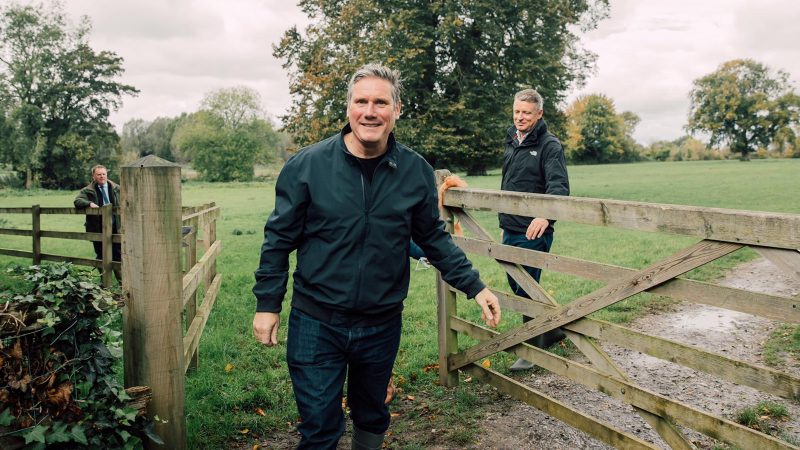
Labour is back in introspective mode. While we wait for details of the review into Labour party policy led by Anneliese Dodds, submissions for Luke Pollard’s more specific rural England policy review has recently closed. Key will be to make sure these reviews are connected. For too long, a narrow view of rural areas as distinct from where Labour traditionally wins has held us back.
Labour is best when its reforming governments set out a positive vision for the future of rural and urban areas alike. Central to that vision is appreciating and recognising that economic vibrancy and innovation is not confined to cities but a feature of rural economies, too.
We cannot think of rural areas in decline. Keir has promised to make the UK the best place to grow up and grow old in, but many will only put villages in one half of that commitment. Although ageing and other demographic trends are pressuring sparsely populated places, these changes and the small size of towns and villages also give rise to opportunities for innovation – as shown in Labour Coast and Country‘s proposed six-point plan for rural England.
The marked growth in remote working, as younger people and families leave cities, should focus minds on the economic development that rural communities can offer. Labour in Wales is already trialling remote working hubs in rural communities, with an official target for the level of working from home or remotely after the pandemic set at 30%.
The first step of our plan is to ensure rural economies and communities are better represented in economic development, giving local authorities – including the hyper local community, parish and town council – the power and resource to develop their own strategies, reflecting recent changes and the views of long-standing residents.
Connectivity is vital to making this work. That means our second step is a Labour commitment to minimum service provision. Our formula for super-fast broadband roll-out should start with those suffering from the worst public transport services. Where communities have lost pubs, GP surgeries, banks, schools or community shops, Labour should champion community hubs that allow residents to access these services under one roof.
Third, the land-use sector will need to go through significant reform to meet our climate change commitments. There are concerns in rural communities that they will be made to act to reduce emissions that mostly come from urban centres.
Local land use frameworks, aimed at reducing uncertainty from Brexit, trade and climate, will be one way of addressing this. As would a system of carbon credits, supporting transfers from cities to rural areas, with their ability to store and preserve carbon in natural environments. Point four of our plan is that rural economies, through their land-use plans, must be given a voice in future trade negotiations.
Fifth, as Labour has pushed the government on its appalling record on crime, we should make clear commitments on tackling rural crime. According to NFU Mutual, rural crime is on the rise, especially vehicle theft, fly-tipping and speeding. One of the draws of rural life is close ties and a community feel. When crime does strike, it can be more shocking, or – as in cases of domestic violence – harder to tackle when coming from close friends or family.
Finally, and central to each of these points, is a means to ensure fair and universal devolution, allowing decisions to be taken much closer to the communities they affect. While cities have been the recent focus, Labour could start with a renewal of the town and parish council settlement to show it is serious about rural voices. Equally important will be reflecting these changes within the party, with a dedicated place for these voices on Labour’s regional boards and national executive committee.
There are signs of hope that rural areas are looking again at Labour – with recent council wins in Devon, and through the mayoral victories of Dan Norris and Dr Nik in the West of England and Peterborough and Cambridgeshire respectively. With an effective review, that sets out the same positive vision for rural policy as our national one, Labour can only build on these successes. Labour Coast and Country’s conference on September 11th will look more at the organisation and delivery required to do so.
This offer, of economic dynamism and connectivity, tackling climate and crime, with people at its heart, is not unique to rural areas. In fact, it is central to the message that wins Labour its urban seats.




More from LabourList
‘Council Tax shouldn’t punish those who have the least or those we owe the most’
Two-thirds of Labour members say government has made too many policy U-turns, poll reveals
‘Two states, one future: five steps on the path to peace for Israelis and Palestinians’